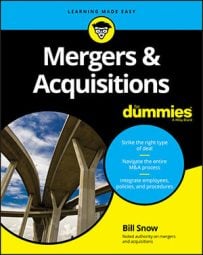Sellers, take some time to determine whether a Buyer is a legitimate Buyer and not just dabbling in mergers and acquisitions. If Buyer is a publicly listed company, its financial statements are publicly available. Pay close attention to the balance sheet in particular.
How much cash and how much debt does Buyer have? If the company has little or no cash and has a high debt load, Buyer may have a difficult time financing an acquisition. If Buyer is privately held, you can ask for the company’s financials, though most privately held Buyers don’t provide Sellers with financials. But what the heck? Asking never hurts.
If you can’t get financials from Buyer, remember that the advent of the Internet has been a great leveler in finding information about companies. A routine online search may yield answers as to whether Buyer is legitimate or not.
If Buyer is a privately held but large, well-known company that regularly does deals, it’s probably a legitimate Buyer. If Buyer is not well known, and doesn’t share financials with you, determining Buyer’s legitimacy can be a trickier affair.
As Seller, don’t agree to a financing contingency (an agreement that says Buyer who can’t arrange financing can back out of the deal) with any Buyer, especially one whose financials/general standing you can’t verify. Be skeptical of a Buyer who insists on a financing contingency, particularly if that Buyer purports itself to be a successful and financially flush company.

